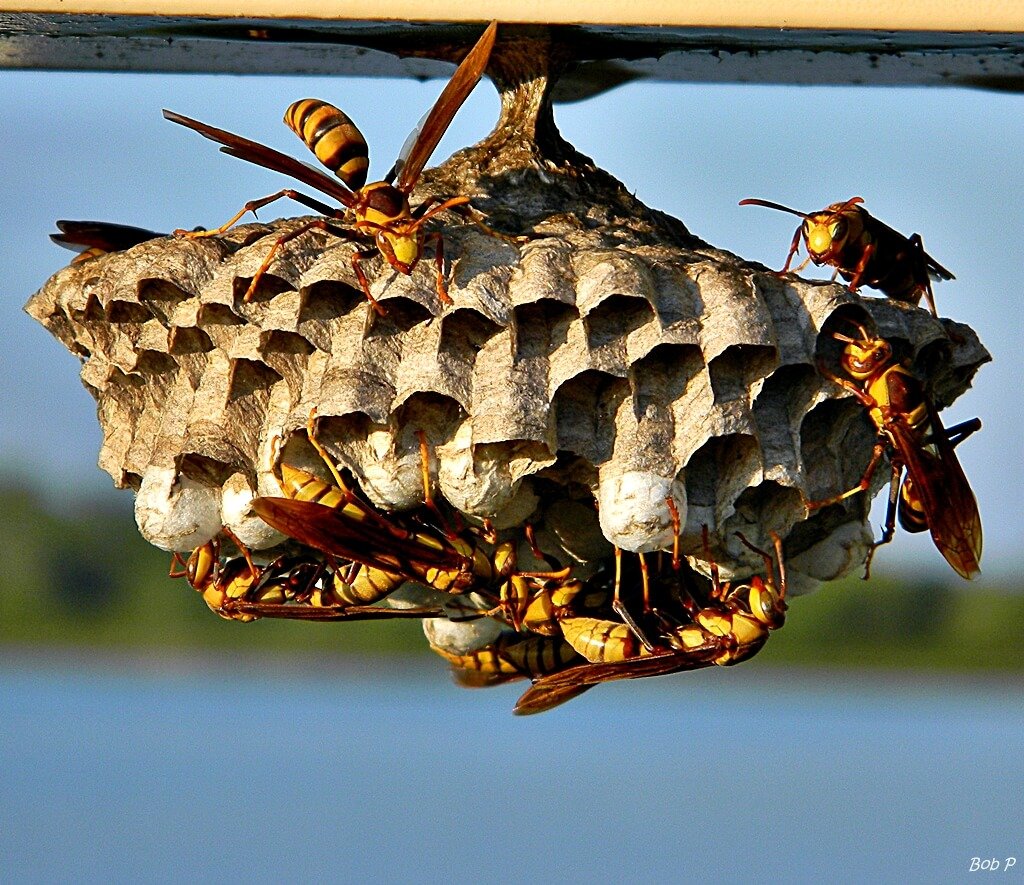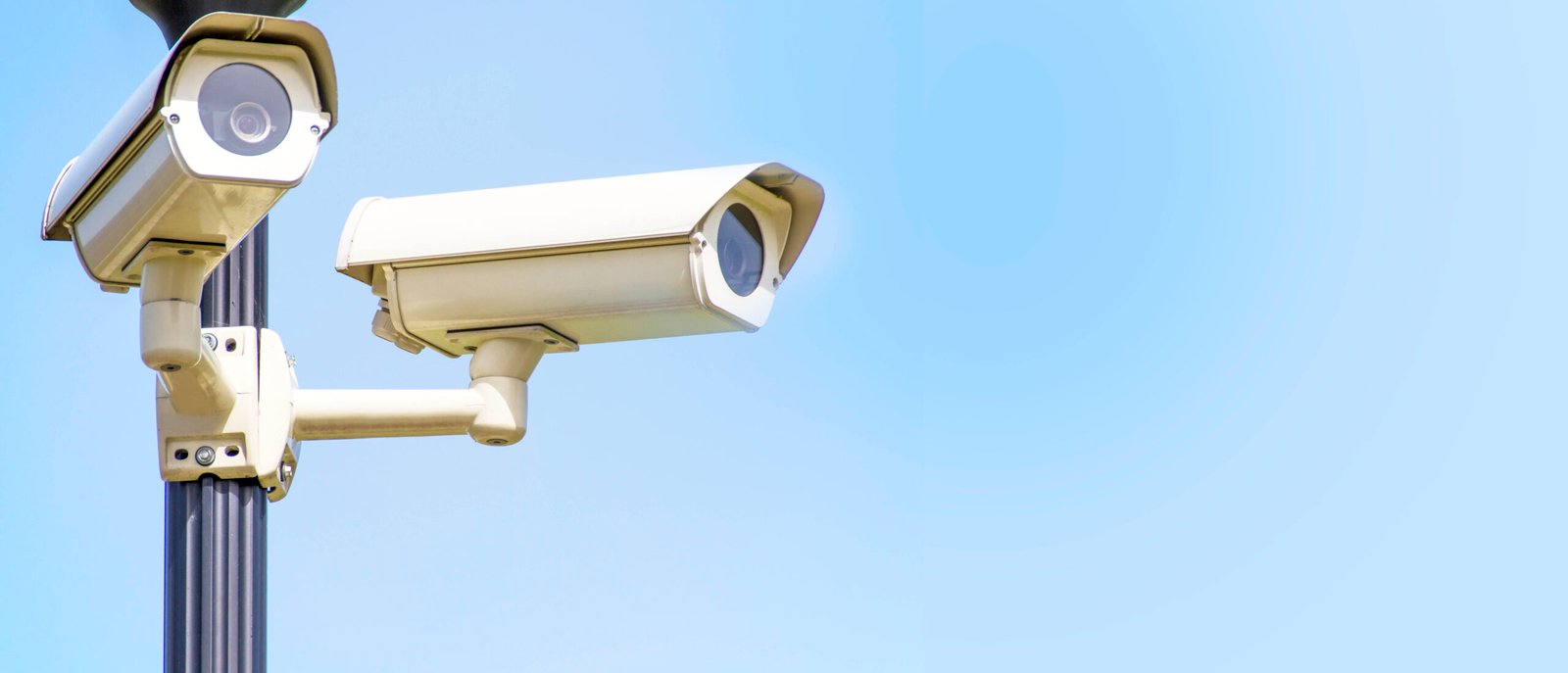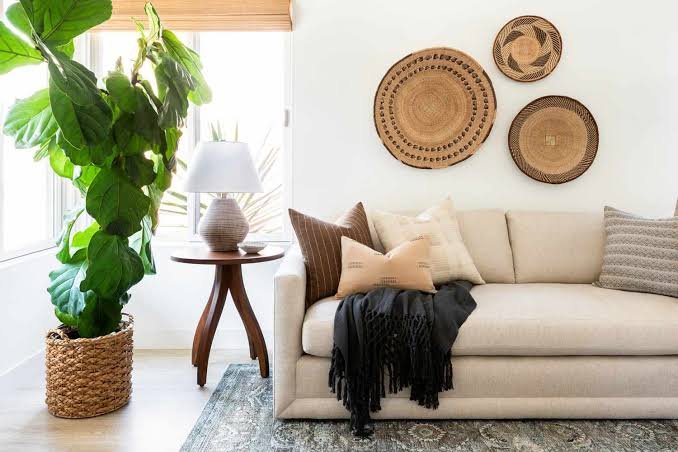Home Improvement
The Impact of Hard Water on Plumbing and How to Deal With It in South East Melbourne

Living in South East Melbourne, you might have noticed a common issue affecting many households and businesses—hard water. Hard water can lead to various plumbing problems, from scaling to blocked fixtures, which can complicate your day-to-day life and even cause long-term damage to your plumbing infrastructure. This blog explores how hard water affects your plumbing and how local experts plumbers in South East Melbourne can help mitigate these issues effectively.
What is Hard Water?
As in many parts of the world, hard water is a common issue in South East Melbourne. Hard water is defined by its high mineral content, primarily calcium and magnesium. While these minerals are not harmful to health and can contribute beneficial calcium and magnesium to one’s diet, their presence in water can lead to several plumbing problems requiring a professional plumber officer’s attention in South East Melbourne.
Signs of Hard Water:
White Scale Buildup: The most noticeable sign of hard water is the white, chalky scale that forms around faucets, showerheads, and appliances such as kettles and boilers. This scaling must be more timely and can damage inefficient plumbing fixtures and appliances.
Common Plumbing Problems Caused by Hard Water in South East Melbourne
1. Scaling
Scaling is arguably the most pervasive issue caused by hard water. Here’s a deeper look into how it impacts your home:
- Interior Buildup: The minerals in hard water deposit themselves on the insides of pipes, boilers, and heating elements within appliances. Over time, this buildup can significantly diminish the efficiency of these systems.
- Reduced Heating Efficiency: As scaling thickens on heating elements, more energy is required to heat the same amount of water, leading to higher energy costs and potential overworking of the system, which could shorten its lifespan.
- Plumbing Blockages: In severe cases, scaling can lead to partial or complete blockages in pipes, disrupting water flow and requiring intervention from skilled plumbers in South East Melbourne to resolve.
2. Blocked Fixtures
Hard water minerals can also accumulate in fixtures, leading to blockages that have several consequences:
- Low Water Pressure: Accumulations can restrict water flow, resulting in decreased pressure that affects everything from showers to kitchen taps.
- Plumbing Back-ups: Significant blockages can cause water to back up, leading to potential overflows and plumbing emergencies that necessitate rapid responses from professional plumber officers.
- Regular Maintenance Needs: To prevent such issues, plumbers in South East Melbourne recommend regular maintenance to clear mineral deposits before they lead to blockages.
3. Appliance Lifespan Reduction
Appliances that regularly use water, like dishwashers and washing machines, are particularly vulnerable to hard water:
- Efficiency Loss: Mineral buildup can interfere with appliance efficiency by clogging water inputs and damaging heating elements.
- Frequent Repairs: As efficiency decreases, appliances may require more frequent repairs to address failures or suboptimal performance, increasing overall maintenance costs.
- Early Replacement: Ultimately, the strain on appliances can lead to a need for premature replacement, which could be costly for homeowners.
How to Combat Hard Water Issues
Dealing with hard water doesn’t have to be a headache. Plumbers in South East Melbourne recommend several effective solutions:
1. Install a Water Softener
Installing a water softener system is the most comprehensive solution to combat hard water. These systems remove minerals such as calcium, magnesium, and others from your water before they enter your plumbing system. Here’s how it helps:
- Prevention of Scaling: By eliminating these minerals, water softeners prevent scale buildup inside your pipes and on appliances, which can degrade their efficiency and lifespan.
- Avoidance of Blockages: Softening the water reduces the risk of mineral accumulation that can lead to blockages in pipes and fixtures, ensuring better water flow and pressure.
- Enhanced Appliance Efficiency: Appliances can operate more efficiently without the extra strain caused by mineral buildups, conserving energy and reducing utility bills.
2. Regular Maintenance
Routine maintenance is vital in managing the effects of hard water. Plumbers in South East Melbourne specialise in descaling services that are crucial for keeping your plumbing system in top condition:
- Descaling Appliances and Fixtures: Regular descaling of water heaters, dishwashers, shower heads, and faucets can extend their life and improve performance.
- Inspections: Professional plumbers can conduct thorough inspections to identify potential hard water damage early, preventing costly repairs or replacements.
- Custom Maintenance Schedules: Depending on the severity of your hard water, plumbers can set up a tailored maintenance schedule that fits your specific needs and budget.
3. Use Vinegar for Small Fixtures
A simple and cost-effective method to handle minor scale buildup is using vinegar:
- Natural Descaling: Soaking fixtures like showerheads and faucets in vinegar overnight can effectively dissolve mineral deposits, restoring proper water flow and spray patterns.
- Safe and Eco-friendly: Vinegar is a secure, non-toxic choice that is gentle on your fixtures but tough on deposits, making it an ideal option for regular use.
- Ease of Use: This method can be quickly done at home without professional help, making it an excellent option for regular preventative maintenance.
4. Filter Systems
Installing point-of-use filter systems can significantly mitigate the effects of hard water directly at the source:
- Targeted Filtration: These systems are installed at taps, showers, or appliances. They filter out minerals as the water passes through, protecting the appliances from scale buildup.
- Versatile Options: Depending on your needs, you can choose from various filters, such as carbon filters for drinking water or sediment filters for washing machines and dishwashers.
- Improved Water Quality: These filters protect against hard water and improve the overall quality of the water, which can enhance taste and reduce potential contaminants.
How Plumbers in South East Melbourne Can Help
Professional plumbers in South East Melbourne are well-equipped to handle the challenges posed by hard water. With access to advanced tools and technologies, such as water softeners and specialised descaling products, they can offer tailored solutions based on your needs.
Local plumbing services include the installation of whole-home water softeners, which can protect your entire plumbing system from the adverse effects of hard water. They also provide regular maintenance checks and are available for emergency call-outs if sudden plumbing issues arise due to hard water.
Hard water is a manageable problem with the right expertise and equipment. By understanding the signs and solutions related to hard water damage, you can proactively protect your home or business’s plumbing system. Keep hard water from putting your water usage and appliance efficiency at risk. Consider consulting with a skilled plumber in South East Melbourne from SE Plumbing today to find the best water treatment solutions for your premises. Their professional advice and service can save you time, money, and a lot of hassle in the long run.
Home Improvement
Natural Methods: How to Keep Wasps Away From Your Home

Wasps can be a nuisance, especially during warmer months. Here are some natural methods to keep these pests away from your home effectively.
Understanding What Attracts Wasps
- Food Sources: Wasps are drawn to protein-rich foods and sugary substances. Clean up spills and store food properly to minimize attraction.
- Shelter: Wasps seek out sheltered areas like eaves, crevices, and wall cavities for building nests.
- Flowers: Wasps are attracted to the nectar and scent of flowers. Keep garden beds well-maintained to reduce their presence.
Natural Repellents and Preventive Measures
Essential Oils
Using essential oils is a popular and effective way to repel wasps. Peppermint oil, in particular, has been found to be highly effective. Soak cotton balls in peppermint oil and place them around your home in areas where wasps are likely to build nests, such as porch roofs and eaves. You can also use a blend of essential oils like lemongrass, clove, and geranium for a stronger repellent. For persistent issues, consider consulting a professional for wasp nest removal and pest control services like wasps nest removal.
Homemade Wasp Repellent Spray
To make a natural wasp repellent spray, mix a tablespoon of peppermint oil with water in a spray bottle. You can also add a few drops of dish soap for better adhesion. Spray this solution around windows, doors, and other entry points .
Plants that Repel Wasps
Planting certain herbs and plants around your yard can naturally deter wasps. Consider growing spearmint, thyme, citronella, eucalyptus, and wormwood. These plants not only add beauty to your garden but also keep wasps at bay.
DIY Wasp Traps
Creating wasp traps can help reduce their numbers. A simple trap can be made using a two-liter plastic bottle. Cut off the top, invert it, and place it back into the bottle. Fill the bottom with a mix of water and sugar to attract them. Once they enter the bottle, they will be unable to escape and eventually drown .
Read More: Business
Physical Barriers and Maintenance
- Seal Cracks and Holes: Inspect your home for any cracks or holes and seal them with caulk or expanding foam sealant. This will prevent wasps from entering and building nests.
- Screen Maintenance: Ensure that window and door screens are intact and free of tears. This will prevent wasps from entering your home .
Safe Wasp Nest Removal
Removing wasp nests can be dangerous and should be done with caution. It’s best to hire a professional for large nests. For smaller nests, you can use a mixture of soap and water to spray directly on the nest. The soap clogs their breathing spores, killing them almost instantly .
By using these natural methods, you can effectively keep wasps away from your home and enjoy a pest-free environment. For persistent issues, consider consulting a professional for wasp nest removal and pest control services like pest control grand prairie.
FAQs
How can I naturally repel wasps?
Use peppermint oil or a blend of essential oils like lemongrass, clove, and geranium.
What plants deter wasps?
Plant spearmint, thyme, citronella, eucalyptus, and wormwood in your garden.
How do I make a homemade wasp trap?
Use a two-liter bottle, cut off the top, invert it, and fill the bottom with water and sugar.
When is the best time to seal cracks to prevent wasps?
Seal cracks in late autumn or early spring when nests are dormant.
Is it safe to remove wasp nests myself?
For small nests, use a soap and water spray. For larger nests, hire a professional.
Home Improvement
6 Privacy Tips for Home Surveillance Systems

Home surveillance systems are becoming increasingly popular as more people seek to enhance their home security. However, while these systems offer great benefits, they also pose potential privacy risks. Balancing security and privacy is crucial. This article provides six essential tips to ensure your home surveillance system protects your privacy while maintaining the security of your home.
1. Choose the Right Equipment
Selecting the appropriate surveillance equipment is the first step in safeguarding your privacy. Opt for devices from reputable manufacturers known for their security features. Ensure the equipment offers strong encryption to protect the data it collects. Avoid cheap, no-name brands as they may lack essential security measures. Investing in quality equipment can prevent unauthorized access to your footage. Research and read reviews to make an informed choice. Choosing the right equipment lays the foundation for a secure home security camera systems.
2. Secure Your Network
Your home network is the backbone of your surveillance system. It’s vital to keep it secure to prevent unauthorized access. Change the default username and password on your router to something unique and complex. Enable WPA3 encryption for the highest level of security. Regularly update your router’s firmware to protect against vulnerabilities. Using a guest network for your smart devices can also add an extra layer of security. By securing your network, you significantly reduce the risk of hackers accessing your surveillance feeds.
3. Set Strong Passwords
Strong passwords are a critical component of home surveillance security. Create strong passwords by combining letters, numbers, and special characters. Steer clear of easily guessed details like birthdays or simple patterns. Update your passwords frequently and avoid using the same password for multiple accounts. Consider using a password manager to keep track of your passwords securely. Strong passwords help ensure that only authorized individuals can access your surveillance system, protecting your privacy.
4. Enable Two-Factor Authentication
Two-factor authentication (2FA) enhances your surveillance system’s security by adding an additional verification step. This extra layer of protection significantly reduces the risk of unauthorized access. It could be a code sent to your phone or generated by an authentication app. Even if someone steals your password, they would still need this additional verification to access your account. Enabling 2FA on all your surveillance and related accounts can greatly enhance your system’s security. This step is simple but very effective in protecting your privacy.
5. Regularly Update Firmware and Software
Keeping your surveillance system’s firmware and software up to date is crucial for security. Manufacturers frequently release updates to patch vulnerabilities and improve security features. Set your devices to update automatically, or check for updates regularly. Outdated software can have security holes that hackers can exploit. By ensuring your system is always running the latest version, you protect it from known threats. Regular updates are a simple but essential step in maintaining the security of your surveillance system.
6. Be Mindful of Camera Placement
The placement of your surveillance cameras can greatly impact your privacy. Avoid placing cameras in private areas such as bedrooms and bathrooms. Ensure that outdoor cameras do not point toward your neighbor’s property. Be mindful of areas where you might expect a higher level of privacy. Proper camera placement not only protects your privacy but also respects the privacy of others. Strategically positioning your cameras helps to achieve the right balance between security and privacy.
Conclusion
Protecting your privacy while using a home surveillance system is essential. By choosing the right equipment, securing your network, setting strong passwords, enabling two-factor authentication, regularly updating firmware and software, and being mindful of camera placement, you can enhance your security without compromising your privacy. These tips provide a comprehensive approach to maintaining privacy in your home surveillance system. Implementing these measures ensures that your system works for you, keeping your home safe while respecting your personal privacy.
Home Improvement
Stylish Living Room Decor: Flower Vases and Hanging Items for a Perfect Home Touch

Decorating a living room to look classy and feel cozy is not exactly easy. It requires some imagination and good design sense. Flower vase for living room decor and other items that can be hung also make the place more appealing to the eyes and add individuality to it. Below are some tips that will enable you to get that ideal look.
Selecting the Appropriate Flower Vases
When choosing flower vases, it is important only to choose those that are compatible with the living room’s color theme. Choose vases with colors that harmonize well with those in the interior or dictate the color theme of the room.
Finding the Right Style for Your Interior Design
This is determined by whether you want your living room to be modern, traditional, vernacular, minimalistic, or any other characteristic. Contemporary decors require simple and elegant vases, while traditional decors require elaborate and antique ones.
Exploring with Shapes and Size
The shape and size of the flower vases that you choose can also be changed to add aesthetic value to the flower vases. Tall and thin vases will make a grand statement, while round and compact vases are perfect for a snug atmosphere.
Utilizing Unique Materials
Try different types of vases. These could be made of glass, ceramic, or metal. They both impose a different feel and look on the space, peculiarly characterizing the environment.
Incorporating Natural Elements
The decoration of a vase filled with flowers but made from natural materials like wood or stone adds more earth elements. Such features can lead to occasions whereby the coziest of moods or conditions are created within a given environment.
Arranging Vases Strategically
Vases can be placed on tables such as coffee and side tables or in other conspicuous areas such as the fireplace. This is because they aim and direct the attention to the major features in the rooms.
Balancing Color and Contrast
It is easier to use vases to emphasize any object or to introduce some monotonous variety into the color that is already utilized. A bright-looking vase would give life to a plain and boring room just by being there.
Mixing Floral Arrangements
Flowers selected for the bouquet and the other greenery accessories do not necessarily have to be in the same style. The best thing, though, is that using fresh and dried flowers together can bring even more depth and warmth to the floral pieces.
Seasonal Flower Choices
Flowers are generally considered to be seasonal products, and therefore, the floral ornaments that one may find in a particular room could be changed depending on the season. For example, flowers produced in spring and summer are often gaudy and hence call for new raw colors and crude patterns, while flowers produced in autumn and winter need rather plain colors.
Creating Symmetry with Pairs
Two vases can form an appealing ratio and constitute order in a room. It is balanced to have two vases on either side of the sofa or a fireplace, and this gives a beautiful outlook.
Choosing the Right Plants
Select plants that may be hung and those that best contain pothos, ferns, or spider plants that thrive indoors. These low-maintenance plants will assist in creating a green outlook for the area.
Creative Hanging Solutions
Check out various hanging options, such as the macrame hanger, plant holder, wall planter, or ceiling hook. All of them are different in terms of the appearance they will give the area.
Incorporating Hanging Lights
Ceiling lights can be hung to provide light and enhance the aesthetic sense. Improvised options like pendant lights, chandeliers, and fairy lights can help set the mood.
Adding Hanging Plants
Indoor hanging plants also offer a good way of enhancing the green outlook within a compound without occupying the floor space. They are used as home decor hanging items that can be arranged in numerous forms, which makes them versatile.
Flower vases and hanging items can add uniqueness, improve the overall appearance of a living room, and make it more inviting. With proper and careful choosing and positioning of such elements, one can design an elegant and cozy living space that will be enjoyable to stay in.
-

 Technology8 months ago
Technology8 months agoExploring Entretech.org: Unveiling the Future
-

 Life Style8 months ago
Life Style8 months agoExploring Myfavouriteplaces.org:// blog: A Journey Begins
-

 Technology8 months ago
Technology8 months agoGPT66X: Revolutionizing Language Models
-

 Eentertainment9 months ago
Eentertainment9 months agoThe Flower of Veneration Chapter 1: A Journey into Intriguing Realms
-

 Games8 months ago
Games8 months agoFour Digits to Memorize: Unlocking the Power of Memory
-

 Technology9 months ago
Technology9 months agoAmazons GPT55X: Revolutionizing Natural Language Processing
-

 Technology8 months ago
Technology8 months agoUnlocking the Potential of TrendzGuruji.me for Awareness
-

 Life Style8 months ago
Life Style8 months agoBluefire Wilderness Lawsuit: Unraveling the Legal Landscape








